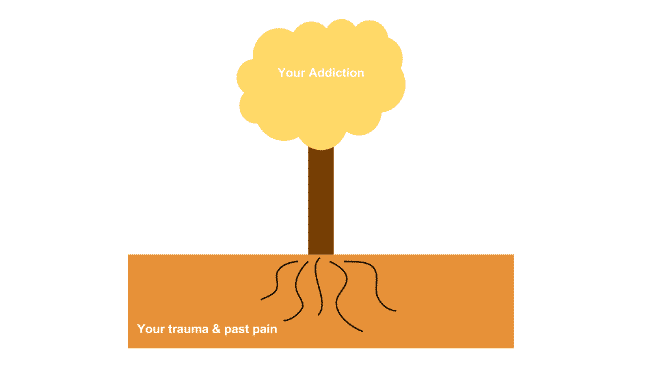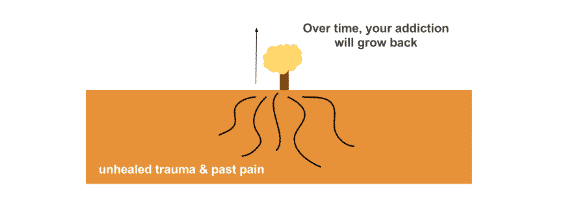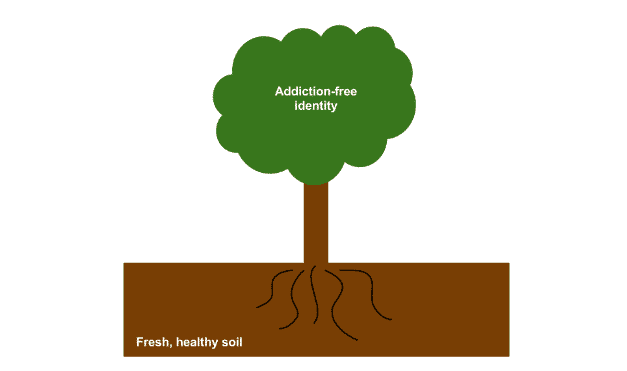Beating addiction isn’t easy. There is a process to follow, however. Learn about the process of actually overcoming an addiction.
Have you ever wondered how to actually beat an addiction? Have you tried on your own only to find yourself right back where you began? Whether it’s alcohol, drugs, or anything else, addiction is painful and all-consuming. The object of your addiction consumes your thoughts and actions, leaving little room for anything else in your life.
Perhaps you are in denial. You think to yourself, “it’s not that bad. I can control it. I can quit drugs anytime I want” Or, perhaps you compare yourself to others, “you should see my friends, compared to them, I don’t have a problem.” Whatever it may be, the fact that you are reading this right now indicates that perhaps there is a small crack in your denial. Perhaps, for the first time in your life you’ve recognized that you have a problem that you can’t actually control. And that’s okay.
There is a path out of the pain. Millions have stepped off of the path of addiction and onto the difficult, powerful, and beautiful path of recovery. Ask yourself the following questions:
- Am I ready to realize my full potential as a human?
- Am I ready to sleep peacefully at night?
- Am I ready for my family and loved ones to trust me again?
- Am I ready to feel a sense of strength and power?
- Am I ready to enjoy hanging out with myself?
- Am I ready to leave the pain and never look back?
- Am I ready to actually do what it takes?
- Am I ready to be honest with myself and others?
- Am I ready to embrace humility and admit that I have a problem?
- Am I ready to heal from the trauma in my childhood?
- Am I ready for a new life?
If you answered yes to those questions, then you are ready for recovery. Addiction recovery is an all-in affair that requires new patterns of living and thinking. It’s crucial that if you are going to truly overcome addiction, you need to have a clear and realistic outlook on what to expect.
Myths About Addiction Recovery
Myth #1 – Recovery is a pit stop.
Many addicts falsely assume that a quick detox in a treatment facility is all that they need. While detoxing and going through withdrawals is a vital step in addiction recovery, it is just the beginning. To truly heal, you need to view your recovery as a journey into a new way of life – not a quick “pit stop” in order to get back to normal.
Myth #2 – You’re a passenger.
You need to understand that you are the primary player in your addiction recovery. If you are a sports fan, you are the point guard or the quarterback. It’s ultimately up to you to drive your recovery. You can’t do it alone. Imagine a quarterback trying to take on an entire football team on his own. He would get flattened. Perhaps you know the feeling if you have ever tried to kick your addiction on your own.
What we do is give you an entire team to guard, protect, coach and cheer you on. This DOESN’T mean that you become a passive passenger.
The Four Phases of Addiction Recovery
At the Recovery Village, we care about your long-term sobriety and the full healing of your mind, body and soul. Because of this, we offer help along every step of the journey.
We’ve found that recovery from addiction is split into four distinct phases. We will take a good look at each of the following phases in this article.
- Phase 1 – Assessment.The first thing you will do is go through a thorough assessment by a team of doctors, counselors, therapists and supporting staff. The purpose is to begin building your individualized treatment plan.
- Phase 2 – Detoxification.In order or start the rehabilitation process detoxification is necessary to rid the body of any harmful drugs. For some, the detox process can be dangerous and thus should be carried out by a trusted and credentialed treatment facility under doctor’s guidance.
- Phase 3 – Rehabilitation.Removal of drugs from your system is just the beginning of the healing process. Rehabilitation involves getting to the core issues that fuel your addiction through therapy.
- Phase 4 – Aftercare.The sole purpose of aftercare is ensuring the transformation that happened during the rehabilitation process endures. Aftercare involves taking steps to ensure that the skills learned during rehabilitation become a part of everyday life.
Phase 1 – Assessment
Primary Goal of Assessment:The goal of assessment is to get a full understanding of your dependency in order to help you fully heal from it.
The Intake Process
During the intake process, you will generally meet with a doctor, psychologist, and/or counselor or therapist. Intake is merely an interview process that serves to admit you into a given substance abuse treatment program. Your medical history — including your mental health history — will be reviewed, and sometimes a physical exam and mental health screening will be performed at this time, too. You’ll likely be asked about the circumstances surrounding your substance abuse, such as events that led to it.
Keep in mind that the doctors and staff are under strict confidentiality and everything you share is private. Additionally, financial circumstances and payment options are reviewed at this time.
The Keys to Success in Phase 1
When trying to beat addiction, the assessment phase is vital because it is the foundation for your recovery strategy. Here are two of the most important things that will help you make the most of this phase.
- Honesty.The first key to being successful in this phase is honesty. With addiction comes shame and feelings of unworthiness. This often drives people to withhold information. They often do this out of shame and embarrassment. False statements about your addiction, such as lying about how often you use a drug or how much of it you use, can seriously hinder your development in a treatment program right from the start. It is vital to your own success that you are open and honest with staff members during your time in treatment.
- Trust.The other key to success in this phase is trust. It can be easy to trick yourself into believing things that aren’t true. You may think that a part of the process is unnecessary. If you don’t understand why your doctors are asking or looking at something, that doesn’t mean they are incompetent. It simply means that you don’t have the full picture.
Phase 2 – Detoxification
Primary goal of detoxification:The primary goal of the second phase of your addiction recovery is to remove your physical dependency of the drug(s) that you use.
After assessment, the next step is often the most physically demanding. This is because your body needs to go through a detoxification process. The detox process can vary greatly depending on the drug you are detoxing from and how severe your usage is. If you are suffering from a severe addiction then you will likely be recommended to go throughmedical detox. This is entirely for your own safety.
Sometimes, you will be prescribed additional medication in order to help you come taper off of your drug. Again, these decisions are made by the medical professionals within your recovery team.
Common Withdrawal Symptoms
Withdrawal symptoms can vary from one drug to another. However, because many drugs target the same neurological processes and influence the production of the same brain chemicals, withdrawal symptoms are often similar. However, the severity of these symptoms is dependent upon a number of things including:
- The drug(s) abused
- The length of the addiction
- The amount of the substance ingested during each use
- Family history
- Co-occurring mental health conditions
Common withdrawal symptoms can range from depression, irritability, insomnia, sweating, and an array of other symptoms.
For more insight on specific drug withdrawal symptoms or withdrawals in general, visit some of the following sources:
The Keys to Success in Phase 2
The main key to success in this phase is simply grit. Getting through withdrawal without relapsing is physically demanding and difficult work. You will be tempted to give in and give up. You might feel that the pain isn’t worth it, and that going back to your addiction is the best answer.
This is not true. Keep in mind that extreme withdrawal symptoms are only temporary.
Phase 3 – Rehabilitation
Primary goal of rehabilitation:The main goal of rehabilitation is to help heal the deeper wounds that created the grounds for addiction in the first place.
Many will admit that the true work of addiction recovery begins in phase three. While detox and assessment are necessary, they are simply the start of a long race. Why is this the case?
To understand why phase 3 is so important, you need to first understand a little about addiction. While addiction is decidedly complex there are common patterns that continue to present themselves.
First, manypeople who struggle with addiction have unresolved trauma and pain from their past. In many ways, this pain is the fuel that keeps the addiction alive. Whether it’s alcohol or methadone, the addictive substance often serves the same purpose: to numb.
Strong emotions, whether angry, sad, or happy can make an addict feel uncomfortable and thus lead him or her to numb those feelings. Often, a chemical dependency will develop secondarily to entrench the dependency.
Picture a tree growing out of the ground. Consider that the tree is just the outward addiction that you suffer from. It could be a “methadone” tree or an “alcohol” tree. In phase 2, you are dealing with this tree. You are cutting it back and chopping it down. It’s painful but necessary.
Sadly, many peoplestop here thinking that they are “healed” because they can’t see the tree anymore.


Phase three helps to ensure that the addiction tree won’t grow back. This is because we give you the tools to excavate the roots and lay down new soil. When you begin to heal from your past pain, it’s much more difficult for the addiction tree to grow again. Instead, you grow a new healthy tree that’s rooted in a deep sense of peace and love for yourself.

Keys to success in Phase 3
While there are many things that will help you be successful during phase 3 of your recovery, the following will help you excel.
- Vulnerability.Being vulnerable and honest with yourself and others is one of the keys to creating new, healthy soil in your life. Those suffering from drug dependence typically live under a deep sense of shame, making vulnerability a scary thing. They often think, “if they really knew me, they wouldn’t love me.” But this isn’t true. You will find that people will stand with you and love you despite it all. The more vulnerable you are during this phase, the more you allow yourself toheal.
- Letting yourself feel.Because you have spent so long numbing your feelings through your addiction, you will likely be very uncomfortable with the new feelings that sobriety is bringing up in you. Perhaps right now, you are still stuck in your addiction and you don’t think you have a whole lot of underlying feelings and pain. This is because your dependency is numbing those feelings out – it’s not what’s truly representative of your inner psyche.A key piece to success in this phase is owning and feeling your emotions. You may many times encounter wanting to turn back to your former substance of choice in order to make the painful feelings go away again.
Phase 4 – Aftercare
Primary goal of aftercare:The main goal of aftercare is to keep you in recovery long after you leave the previous phases.
Keys to Success in Aftercare
Social support is one of the most important factors in helping recovering addicts maintain a healthy lifestyle. Along with the professionals you meet in rehab, you can draw strength and hope from a variety of community organizations and programs such as:
- Alumni organizations
- Support groups
- Sponsors
- Life coaches.
Identifying the resources you need for a successful recovery is one of the most important goals of rehab. From the time you enter the facility, your treatment team should be working with you to help you build new life skills and find effective tools. Recovery isn’t just about clearing the drugs and alcohol from your system or stopping destructive behaviors. It’s about creating a healthy new life that gives you a sense of purpose, meaning, and satisfaction. See additional information onaftercare here.
Recovery Is Possible
Please understand that addiction recovery is absolutely possible.
There IS hope for you.
There IS healing for you.
There IS a new life for you.
There IS freedom for you.
Are you willing to embark on the journey of your lifetime? Are you ready to let go of the shame and pain?
We are here for you. Please visit our contact page and get in touch with us today.
There is no reason to wait.














